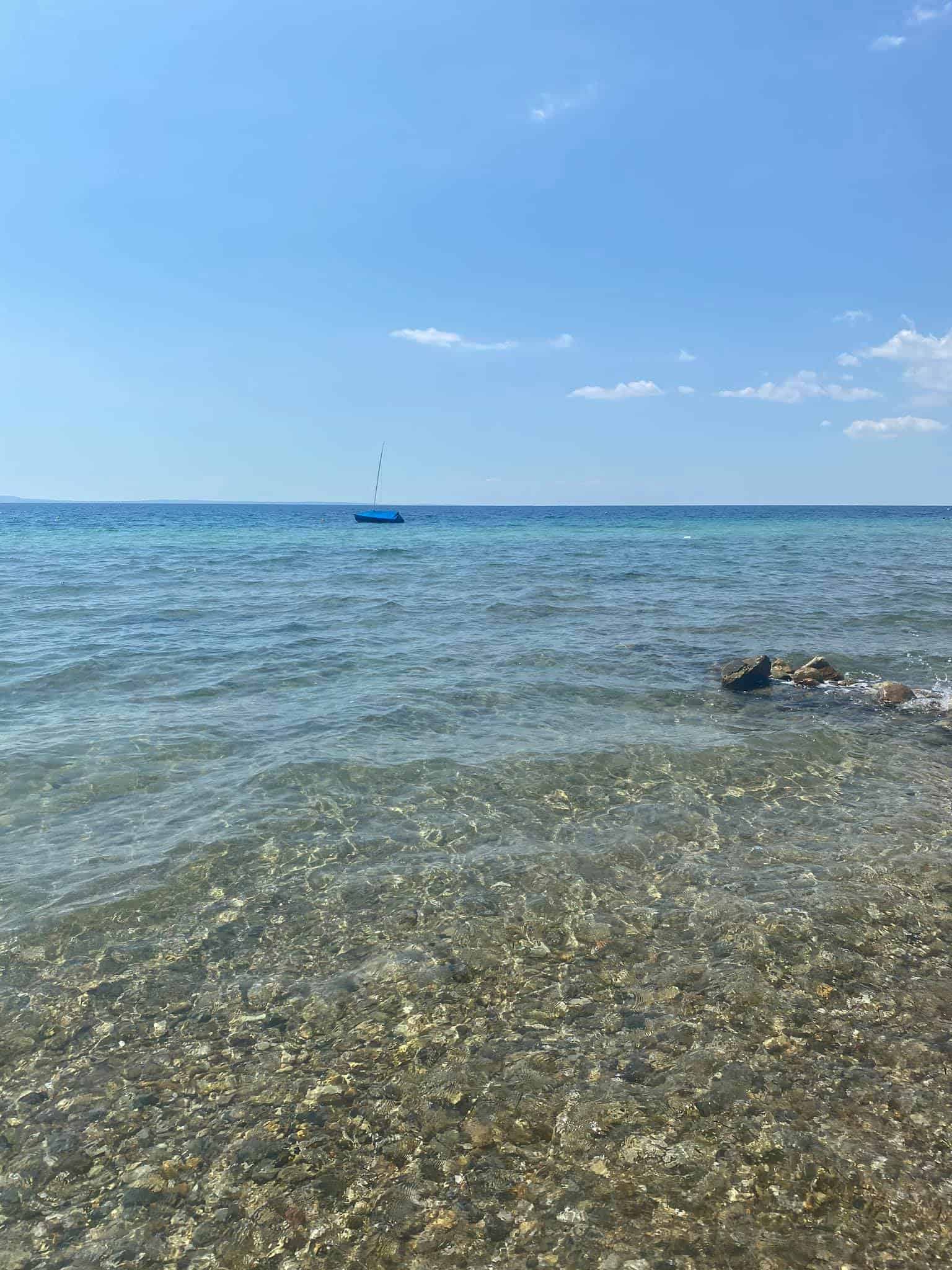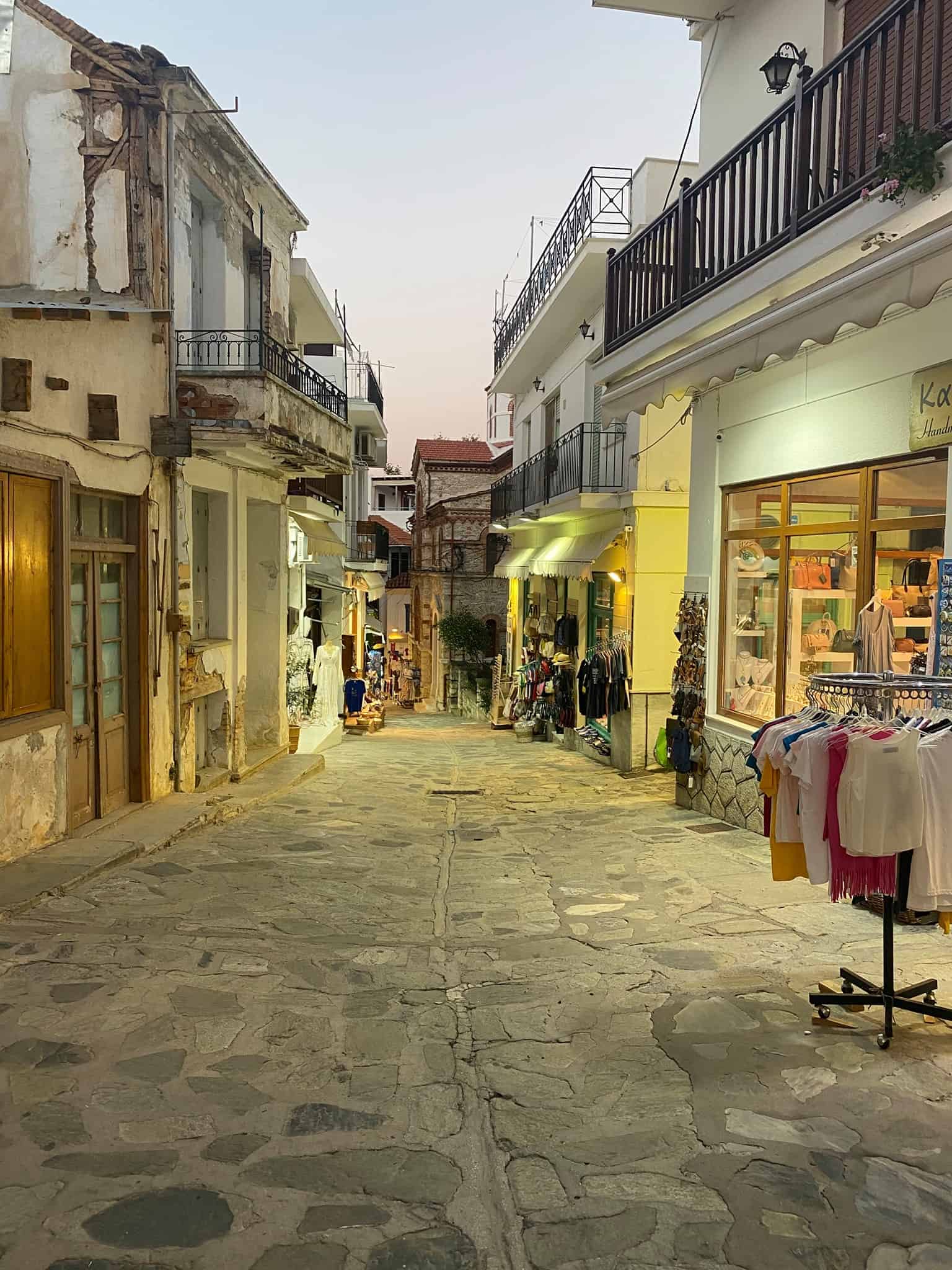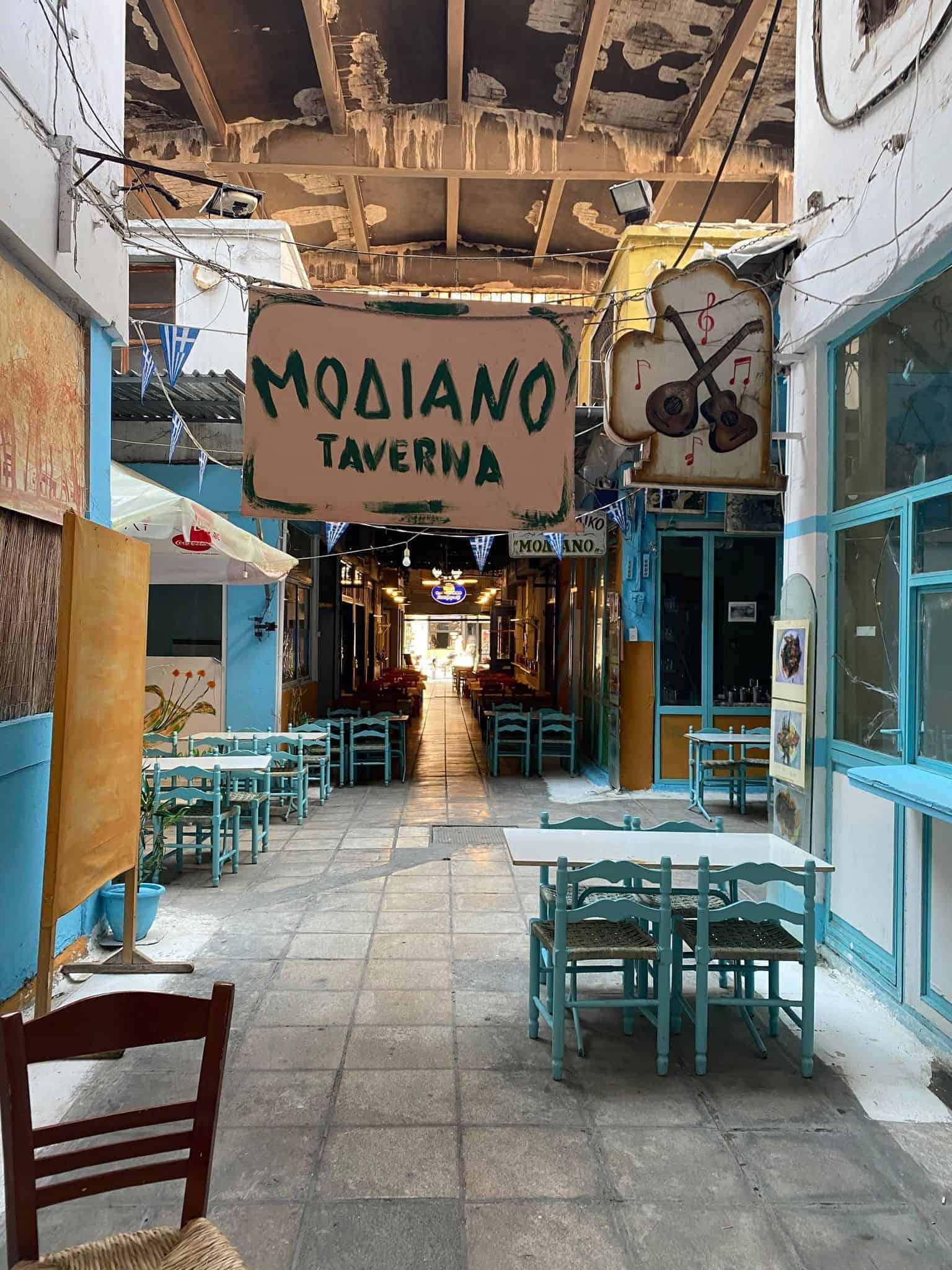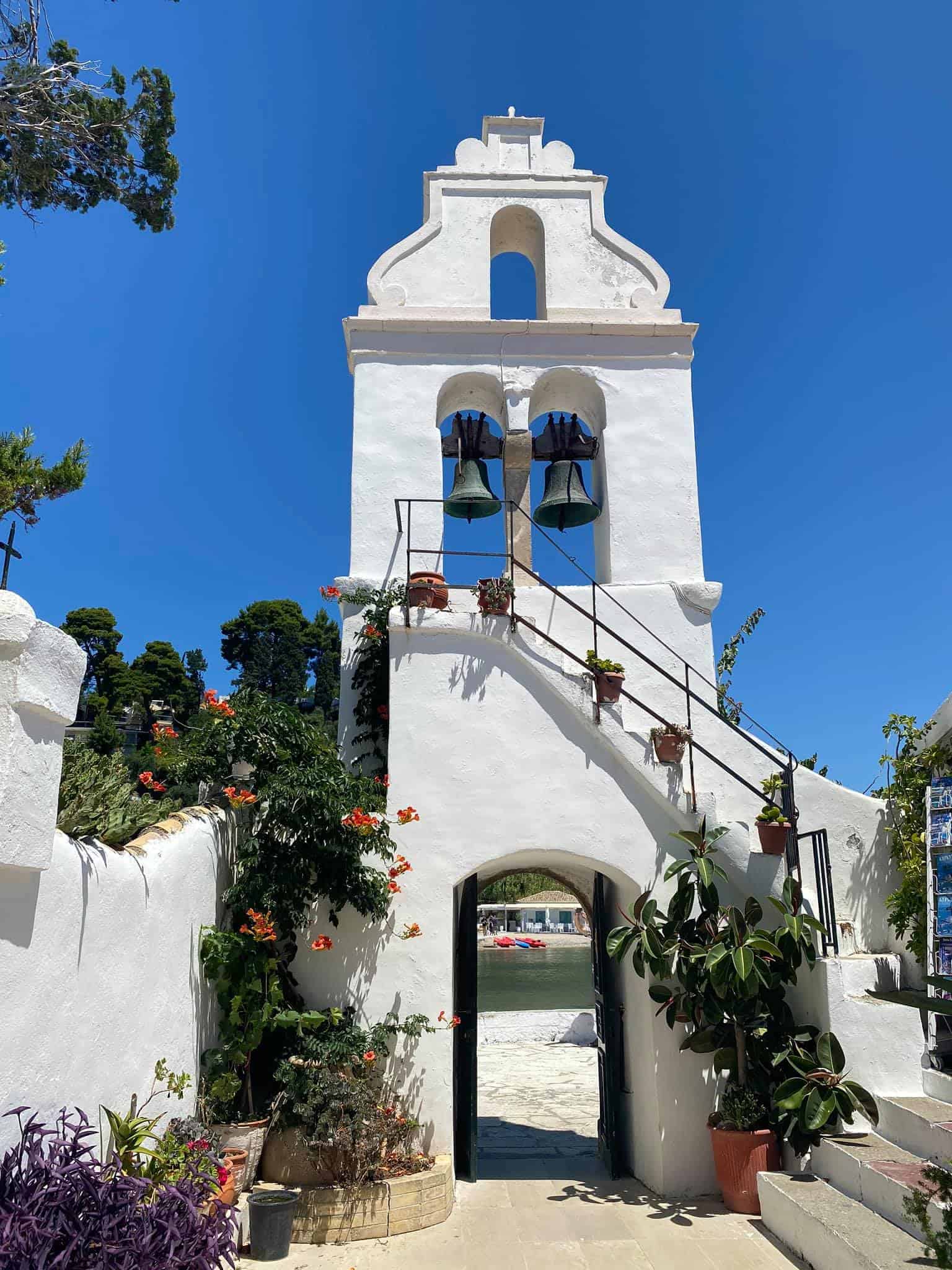Where to Change Dollars to Euros in Thessaloniki
Understanding how you are going to handle your money in Greece is key. It is one of the most important things to consider before you set off on an adventure to this Mediterranean paradise.
You need to establish the best means of withdrawing cash and exchanging currency locally. Not to mention, it is crucial to understand the kinds of fees that apply when using your bank card.
Page Contents
- 1 Money in Greece: A Cash-Based Society
- 2 Money in Greece:Important Info About Greek Currency
- 2.1 Understanding the "Eurozone"
- 2.2 Euro Denominations
- 2.3 Exchange Rates
- 3 Bank Cards that Do Not Incur Charges
- 3.1 Be Informed About the Cost of Using Your Card Overseas
- 4 Should You Take Cash to Greece?
- 5 Withdrawing Cash from ATMs in Greece
- 5.1 How Safe Are ATMs in Greece?
- 5.2 ATM Fees in Greece
- 5.3 Taking Your Bank Cards to Greece
- 5.4 Withdrawing Cash from ATMs in Greece
- 6 Currency Exchanges in Greece
- 7 Tips for Managing Your Money in Greece
- 8 Opening a Bank Account in Greece
- 9 Money in Greece FAQs
- 9.1 Do Greeks Prefer to Use Cash or Card?
- 9.2 Paying by Card
- 9.3 Credit or Debit Card?
- 9.4 Final Thoughts
- 9.5 Melissa Douglas
Money in Greece: A Cash-Based Society

When it comes to using money in Greece, cash is king here. By law, Greek businesses are required to have POS machines and accept card payments. However, the majority of people prefer to use cash.
It is also worth noting that for you as a traveller, it is preferable to use cash where you can. More than likely you will incur charges for every transaction you make on your card if you are using an international debit or credit card. A few euros here and there can quickly add up.
Money in Greece:
Important Info About Greek Currency

The euro is the currency used in Greece. This has been legal tender here since January 2002 and the introduction of "the eurozone".
Prior to this, the Greek drachma was used. However old drachmas are not accepted in Greece today.
Other currencies are not used in Greece. It is not possible to pay for goods and services with US Dollars or other international currencies.
Understanding the "Eurozone"

The Eurozone is the name for the 19 countries within the EU that use the euro as their primary currency. 19 out of 27 member states use the euro.
This makes things very convenient if you are travelling to Greece as part of a wider Europe trip. You can use your euros in Greece as well as in Italy, France, Germany, and various other European currencies.
Euro Denominations
Euros are available in both coins and notes. You can get them in denominations of 5, 10, 20, 50, 100, and 500. 100 and 500 euro notes are very rare and not widely accepted.
When changing currency, you should try to ensure that the largest denomination that you receive is €50. It is not likely you will be given a larger denomination.
Exchange Rates
Global currency exchange rates constantly fluctuate. You can use currency conversion websites such as xe.com to check the latest rate.
Try to monitor the exchange rate a few weeks/months prior to your Greece itinerary. You could purchase a small number of euros before your departure. Exchange rates vary from one currency exchange to another so shop around to ensure that you are getting the best rate.
Bank Cards that Do Not Incur Charges

It is very important to be aware of the specific charges that your bank charges you when you use your debit and credit cards overseas. Fees are often incurred for both cash withdrawals and in-store purchases.
Be Informed About the Cost of Using Your Card Overseas
It may be that your bank charges you a foreign transaction fee in addition to fees charged by ATM machines and conversion fees. You could easily be looking at upwards of 4 euros per transaction.
Specific fees vary depending on your card issuer. If you need to make a cash withdrawal, consider drawing out the maximum amount (or thereabouts). If you make repeated small transactions, the amount you incur in fees will accumulate more.
In order to minimise banking fees as much as possible, it is worth considering getting a borderless bank account. Various financial institutions offer these.
N26 and Transferwise are two very reputable providers worth considering. If you are going to be relocating to Greece, even as a Digital Nomad, consider opening a Greek bank account.
Should You Take Cash to Greece?
It is prudent to make sure that you have at least a little cash with you before arriving in Greece. Take enough to get you from the airport to your destination, and last you a day or so at least. That way you will not be frantically searching for exchange counters on arrival.
Withdrawing Cash from ATMs in Greece

Withdrawing money from ATMs in Greece is arguably the best, and most affordable option if you are using an international bank card. You will find ATMs scattered throughout all towns, cities, and tourist areas.
Piraeus Bank, Alpha Bank, and the National Bank of Greece are some of the main domestic bank accounts in Greece. You will also find "Eurobank" ATMs, however, this bank seems to charge some of the highest fees.
Avoid these ATMs at all costs if you can. When using ATMs in Greece, you will be given the option to select your language after you insert your card into the ATM.
Greek ATMs display their selections in Greek, English, and a number of other languages. You will generally be provided with two options with regards to how you want your bank to charge you.
How Safe Are ATMs in Greece?
Greek ATMs are safe and trustworthy. However, it is advisable to use an ATM machine that is adjacent to a bank as opposed to a standalone ATM.
That way you can enter the bank and speak to someone if you have any issues. The latter are more likely to have been tampered with.
ATM Fees in Greece
When you choose to make a withdrawal, you will be given the option to be charged in the local currency (euros) or your home currency. Check these numbers carefully as one option may be much more costly than the other.
As a rule of thumb, you should always choose euros. This generally gives you a better deal.
An estimated conversion rate will show up on the ATM display. You can Google this on your phone and cross-reference it if you like to see if you're getting a good deal. Never choose to convert to your own currency as you will not get a good rate.
A lot of Greek ATMs charge for withdrawals. Any withdrawal and/or conversion fee should be displayed on the screen when you try to withdraw cash. Keep in mind that fees charged by your bank are in addition to this.
Taking Your Bank Cards to Greece
It is always good practice to contact your bank before you travel and let them know that you are planning a trip to Greece. This way, they can mark your account as such. You don't want to be having to make international calls to your bank because they have blocked your card for suspicious activity when you're just on vacation!
Check what foreign transaction fees your bank charges you for overseas card use. Some banks even charge you withdrawal fees that become higher the more money you withdraw.
Withdrawing Cash from ATMs in Greece
Greek ATMs often set withdrawal limits. Your bank too, more than likely has a withdrawal limit.
You may insert your card into the ATM and find that you are presented with a list of options for withdrawing up to 800 euros. However if you try and withdraw more than your card's limit, the transaction will be declined. Check the specifics with your bank before you travel.
Currency Exchanges in Greece

There are many currency exchange kiosks in Greece. If you are considering changing money this way, it is important to shop around and see what rates are available.
As a rule of thumb, you should never change money at the airport exchange office. This rate will not be competitive and you will lose money.
Generally speaking, you should also avoid changing money in "touristic" hot spots. This includes the exchange office in Athens' Syntagma Square, exchanges in hotels, at railway stations, etc.
The most competitive rates are usually available in banks. You do not have to be a customer at a specific bank to use their currency exchange services but you may need to show some identification.
Tips for Managing Your Money in Greece

Greece is a generally safe place to travel to. Athens too is safe provided you use common sense.
As with travelling anywhere, do not flash your cash, and do not keep all of your money on your person or in one place. Make use of the hotel safe and carry just enough with you each day.
When withdrawing money, consider how much you need for the activities you have planned. Don't withdraw too little that you have to keep using the ATMs and incurring charges for each individual withdrawal.
But equally don't withdraw so much that you wind up leaving your vacation with a ton of unused euros! Try to establish a budget for your trip and weigh up how much you are likely to spend based on average costs wherever you're travelling.
Consider purchasing a pacsafe theft-proof backpack when you travel. This will give you a little peace of mind when exploring tourist sites that no one can get into your backpack.
Opening a Bank Account in Greece
If you are planning to stay in Greece for the medium or long term, you will need to open a bank account in Greece. Fortunately, this process is relatively easy.
A bank account is a requirement if you hope to obtain residency in Greece. It is worth reviewing the products and policies of a number of different Greek banks prior to deciding who to open an account with.
As is the case in many countries, some Greek banks charge monthly admin fees, or offer "added extras" to their banking products. Bank accounts need to be opened in person, and you will need to take a number of documents with you to the branch.
This includes your AFM tax number, your proof of address, your proof of salary, your passport, and the required funds to open your account. The process is straightforward but Greek bureaucracy can be a headache so be patient and take a local friend along if you can.
Money in Greece FAQs

Do Greeks Prefer to Use Cash or Card?
Cash is preferred in Greece, even though businesses are now required to accept cards. Unofficially, you may come across a lot of establishments that offer you a discount if you pay in cash.
This is generally because they will try not to declare it for tax purposes. Similarly, you may not often get receipts.
Why? Because that money is not being declared for tax purposes. Always ensure that you get receipts/invoices for accommodation and tours for your own peace of mind.
Paying by Card
If you want to pay by card at restaurants, coffee bars, and retail shops, it is always a good idea to check that these are accepted. Sometimes you may find that the POS machine is out of order and you don't want the awkwardness of eating and not knowing how to pay!
Credit or Debit Card?
It is a good idea to have a couple of payment options available when travelling to Greece. This means taking a number of euros in cash with you and having your debit and credit card readily available.
This way, if you have an issue with one payment method, you will not be stuck. Credit cards also offer additional protection and insurance compared to debit cards.
Final Thoughts
Please don't hesitate to reach out to me if you have any additional queries or concerns about managing money in Greece. I have lived in Athens for four years. I am happy to assist where I can.
Safe travels! Geia sou! Melissa xo
Melissa Douglas is a British Travel Writer and Blogger based in Athens, Greece. She writes for numerous high profile travel publications across the globe - including Forbes Travel Guide, Matador Network, The Times of Israel and The Huffington Post.
Where to Change Dollars to Euros in Thessaloniki
Source: https://www.highheelsandabackpack.com/money-in-greece/
0 Response to "Where to Change Dollars to Euros in Thessaloniki"
Publicar un comentario